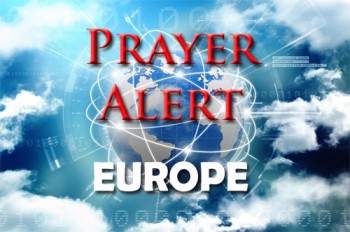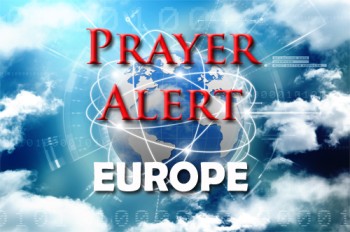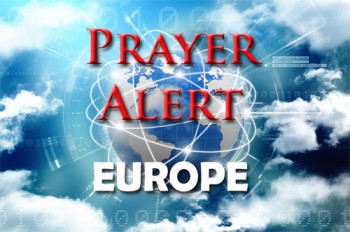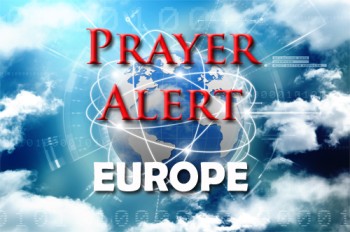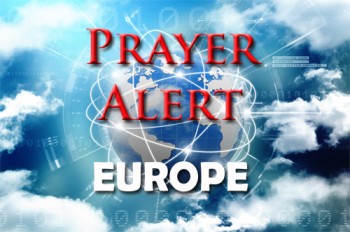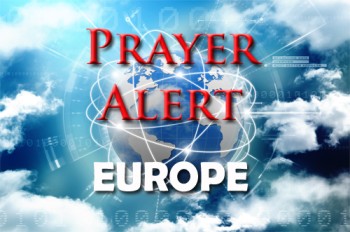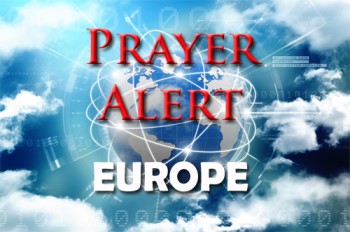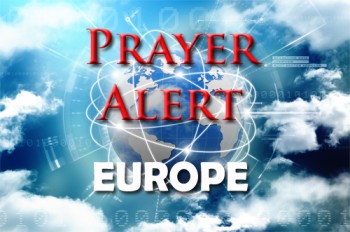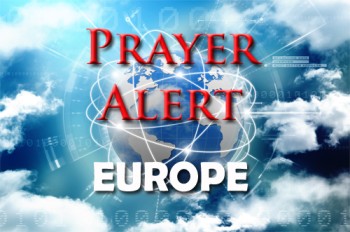Displaying items by tag: Greece
Greece: smugglers blamed for fifteen deaths after speedboat collision
The deaths of fifteen Afghan and Moroccan migrants after a speedboat collision on 3 February with a coastguard boat have raised troubling questions about accountability at sea. The Greek authorities were quick to blame smugglers, saying the migrant vessel ignored warnings and manoeuvred dangerously. Yet critics urge caution, pointing to past incidents where official explanations later unravelled. In 2023, hundreds of migrants died when the fishing boat Adriana sank, initially described as unavoidable, before survivors alleged coastguard involvement. Years later, senior officers now face prosecution. In the current case, no testimonies from survivors have yet been made public and no independent video evidence has been released, so that there is uncertainty about what truly happened in the darkness. Greece remains a major entry route into Europe, while its government pursues a tough deterrence policy praised by some voters but condemned by human rights groups. The tragedy highlights the ongoing human cost of migration and the need for truth, transparency and compassion.
Greece: parliament set to approve thirteen-hour workday
Greece is poised to introduce one of Europe’s most controversial labour reforms - a thirteen-hour workday for private-sector employees. The new legislation, expected to pass parliament despite widespread protests, would allow workers in industries such as manufacturing, retail, and hospitality to take on a sixth workday and extended hours, with higher pay for overtime. The government argues that this flexibility will help address labour shortages and support economic growth amid an aging population. However, unions and opposition leaders have condemned the move as a step backward, heightening job insecurity, disrupting work-life balance and legalising overexploitation. One in five Greeks works more than 45 hours a week, the highest rate in the EU, and outdone by only four other countries in the world; low salaries force many to work two jobs to cover the soaring cost of living, in particular high housing costs. Officials insist the extra hours will be voluntary and regulated, but many groups are deeply sceptical.
Greece: wildfires threaten large city, European heatwave
Fast-moving wildfires have reached the outskirts of Patras, Greece’s third-largest city, forcing mass evacuations, including a children’s hospital, and destroying thousands of hectares in the surrounding region. Entire villages have been emptied, homes and businesses lost, and hundreds of vehicles incinerated. Strong winds and soaring temperatures, reaching 38°C, have worsened the crisis, while smoke has caused respiratory problems for many residents. Across Greece, over 4,800 firefighters are battling more than 20 blazes, with EU water bombers requested for support. The crisis is part of a broader southern Europe heatwave, with deadly fires in Spain, large outbreaks in Portugal, Albania, and Italy, and record-high temperatures threatening lives and infrastructure. Meteorologists say such extremes are becoming more frequent and intense due to human-induced climate change. See also UK article ‘fourth heatwave’.
Greece: prime minister blocks full investigation into huge fraud scandal
A major scandal has erupted in Greece, with European prosecutors accusing senior government officials, including ministers and MPs, of orchestrating a large-scale scheme to defraud the EU of agricultural subsidies. It is claimed that individuals illegally claimed payments for non-existent or unusable pastureland, depriving legitimate farmers of support. However, those who have been accused are likely to evade justice because, despite widespread criticism, Prime Minister Kyriakos Mitsotakis is blocking a full-scale investigation, using legal loopholes and his party's parliamentary majority. A 3,000-page dossier has implicated former agriculture ministers and top officials in a coordinated effort to bypass controls, intimidate investigators, and ensure fraudulent payments were processed. Despite internal warnings and blocked payments, whistleblowers were forced out, and payments resumed under political pressure. Even though the extent of damages has not yet been assessed, Brussels has ordered Greece to forfeit nearly €400 in funding, over a fifth of the direct payments it had been due to receive next year. The case offers damning evidence that after three bailouts and a financial crisis that lasted over a decade, Greece still hasn’t cleared out the rot.
Greece: five wildfires break out on Chios
A state of emergency has been declared on the Greek island of Chios as five separate wildfires, fanned by strong winds, are ravaging homes, farms, and infrastructure. The fires broke out within hours of each other, prompting the evacuation of seventeen communities. The authorities have launched an arson investigation, citing the suspicious timing and clustering of the blazes. They have caused widespread damage, destroying homes and cutting power across the island. Nearly two hundred firefighters, backed by aircraft and helicopters, are tackling the flames, with ninety more en route from Athens and Thessaloniki. Residents have joined in the firefighting effort, using buckets and makeshift equipment. This is the first major wildfire this summer for Greece, which is no stranger to devastating fires and extreme heat.
Greece: nationwide general strike
On 20 November a nationwide general strike disrupted Greece as workers demanded better pay and improved living standards. Doctors, teachers, transport workers, and trade union members were among those who joined the protest. In Athens, demonstrators chanted for workers' rights and decried the high cost of living, with inflation in energy, food, and housing outpacing salary increases. The strike reflects frustration over the lingering effects of Greece’s 2009–2018 debt crisis, which required severe wage and pension cuts in exchange for €280 billion in bailouts. Though the economy has rebounded, wages remain low compared to the EU average, and many workers report a 50% reduction in purchasing power. The government has raised the minimum wage four times, now at €830, with a target of €950 by 2027, but protesters argue these measures fall short. The strike coincides with the submission of Greece's 2025 budget, which includes plans for modest economic growth and increased spending on wages and pensions.
Greece: wildfires cause widespread damage and evacuations
Although wildfires around Athens have now been brought under control, Greek officials remain on high alert due to the risk of flare-ups caused by high winds and temperatures exceeding 30°C (86°F). Over 100,000 acres of land have been scorched, leading to the death of one woman and dozens of injuries. Thousands of residents were evacuated as flames reached up to 25 metres (82 feet) high. Firefighters continue to douse affected areas, with a strong presence maintained in the region. The government is assessing damage, and assistance has been given by several European countries, including Italy and France. The country’s prime minister, Kyriakos Mitsotakis, returned early from his holiday to address the crisis. Buildings, businesses, and even a school have been destroyed by the fires. Greece has just experienced its hottest June and July on record.
Balkans / Greece / Ukraine: heatwave causes huge problems
The Balkans, along with much of Europe, are enduring a prolonged heatwave, which has led to the unprecedented drying up of Serbia's Rusanda salt lake. An expert has warned that such heatwaves could become more frequent due to climate change. Temperatures in the Balkans have soared to 39°C (102°F), and the Adriatic Sea reached a record-high temperature of 29.5°C in Croatian coastal resorts. North Macedonia and Albania have deployed resources to combat forest fires, with North Macedonia declaring a state of emergency. The World Bank has highlighted the need for significant investment to mitigate the impact of climate change. Other European countries, including Italy, Greece, and France, are also experiencing extreme heat. In Ukraine, rain is forecast on 18 July, to break the pattern of several weeks of abnormally high temperatures; the country’s grain harvest is likely to be significantly reduced.
Greece: orange dust from Sahara envelops Athens
A dense orange haze has enveloped Athens as clouds of Sahara desert dust swept across Greece, marking one of the worst episodes since 2018. Similar clouds hit Greece, Switzerland, and southern France in late March and early April. As the air quality has deteriorated, Greeks with respiratory issues have been advised to stay indoors, wear masks, and avoid strenuous activities. The Sahara annually releases 60 to 200 million tonnes of mineral dust, some of which travels long distances. A meteorologist has compared the view from one weather station to Mars. The fire service has reported 25 wildfires in 24 hours, including one in Crete, where temperatures soared above 30C. The situation underscores the environmental challenges posed by such natural phenomena, requiring vigilant monitoring and response efforts.
UK / Greece: ongoing row over Elgin Marbles
The ‘Elgin Marbles’ are ancient Greek sculptures taken from the Parthenon in Athens and currently housed in the British Museum. The British government argues that the marbles are a part of world heritage, while Greece has called for their return to their homeland. The argument has flared up with the visit of the Greek prime minister to the UK. When he raised the issue in a TV interview, Rishi Sunak cancelled their scheduled meeting, claiming that he had reneged on his promise not to campaign publicly about their return. The Greek foreign minister, at a NATO meeting, has said their claim is based on ‘history’ and ‘justice’. This issue highlights the broader question of repatriating cultural artefacts taken during colonial times.
